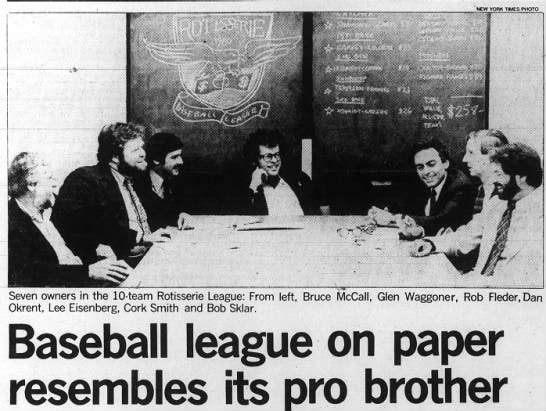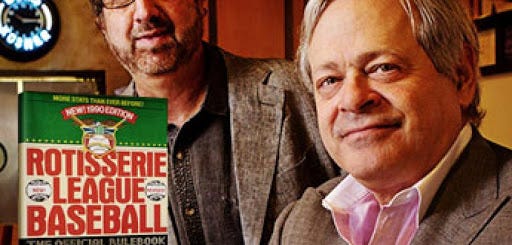Okrent's Deadly Toy (Summer 1980)
Forty years of fantasy sports, and the return of nothing resembling normal
Welcome to Throwbacks, a weekly-ish newsletter by Michael Weinreb about sports history, culture and politics. If you like what you’re reading, please subscribe and share.
I. Rotisserie League Baseball
Forty years ago, in 1980, at the dawn of a new decade in a country wrestling with its own weaknesses, a group of men sat around a table at a restaurant called La Rotisserie Francaise in Manhattan and held an auction in which they each drafted imaginary baseball teams. This was the inaugural draft of what became known as the Rotisserie Baseball League; it also marked the onset of an era when sports would become increasingly marketed and commoditized, and when outside forces like television and its advertisers increasingly took control of the product.
The originator of Rotisserie Baseball, the writer Daniel Okrent, quickly realized he’d stumbled onto something with universal appeal. He trademarked the name Rotisserie, but he could not trademark the central idea. He and his colleagues soon published guidebooks like the one I stumbled across in a bookstore sometime in the mid-1980s, with which I somehow managed to convince four of my friends that we should be doing this ourselves. And so we did: We drafted our teams in my basement, we calculated our own stats on sheets of lined notebook paper using the weekly numbers published in the Tuesday and Wednesday editions of USA Today, and we embraced the mercenary ideas behind what would soon become known by the more generic moniker of “fantasy” sports.
Thirty five years after its invention, in 2015, Okrent spoke to Ben McGrath, a writer for The New Yorker. He and his colleagues never made much money off the idea, but that was not the primary reason for his colossal regret. It was more about what the Rotisserie Baseball League had wrought; it was about, Okrent said, how “the actual game (of baseball) had lost meaning.” Fantasy baseball, rotisserie baseball, or whatever you want to call it, was ultimately a sucker’s game, one that commoditized numbers and statistics to the point that sports themselves had become secondary.
“When people say, ‘How do you feel, having invented this?’ I say, ‘I feel the way that J. Robert Oppenheimer felt having invented the atomic bomb,’’’ Okrent said. “I really do. I mean, pretty terrible!”
Keep reading with a 7-day free trial
Subscribe to Throwbacks: A Newsletter About Sports History and Culture to keep reading this post and get 7 days of free access to the full post archives.





